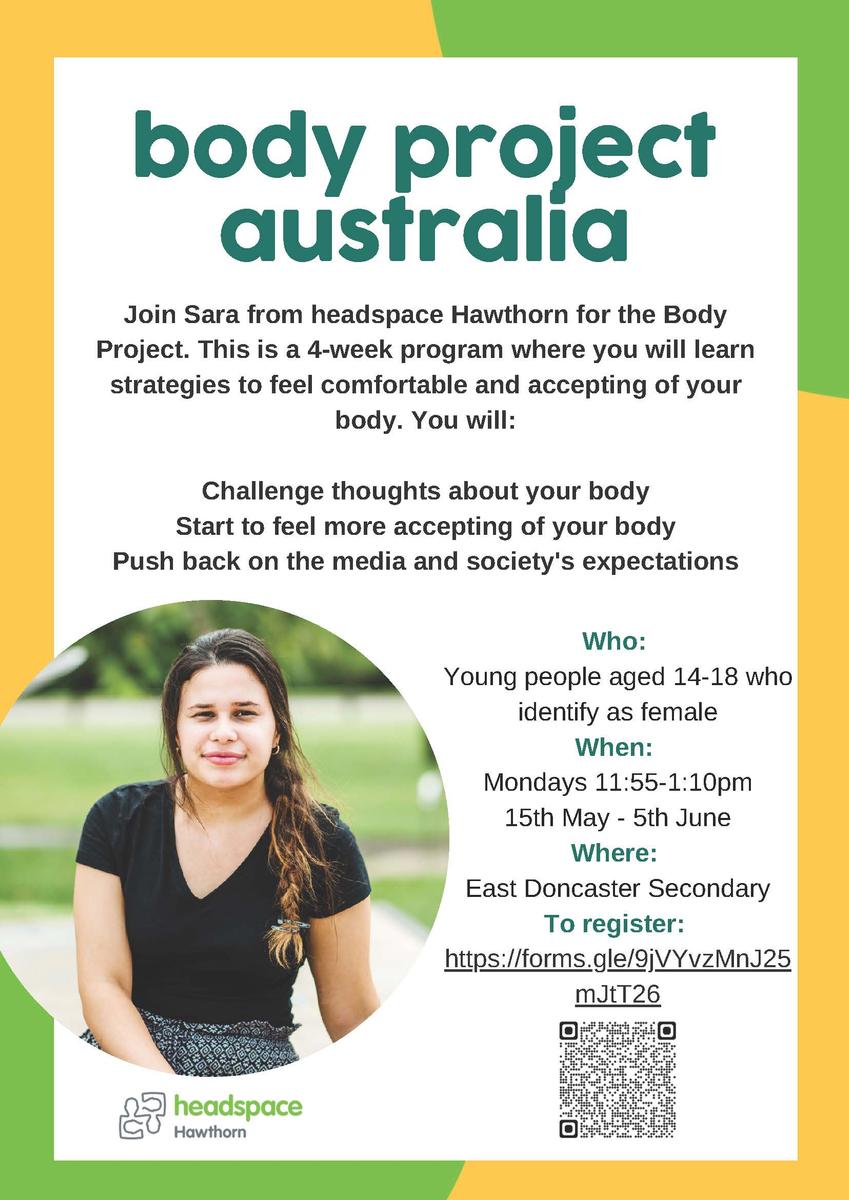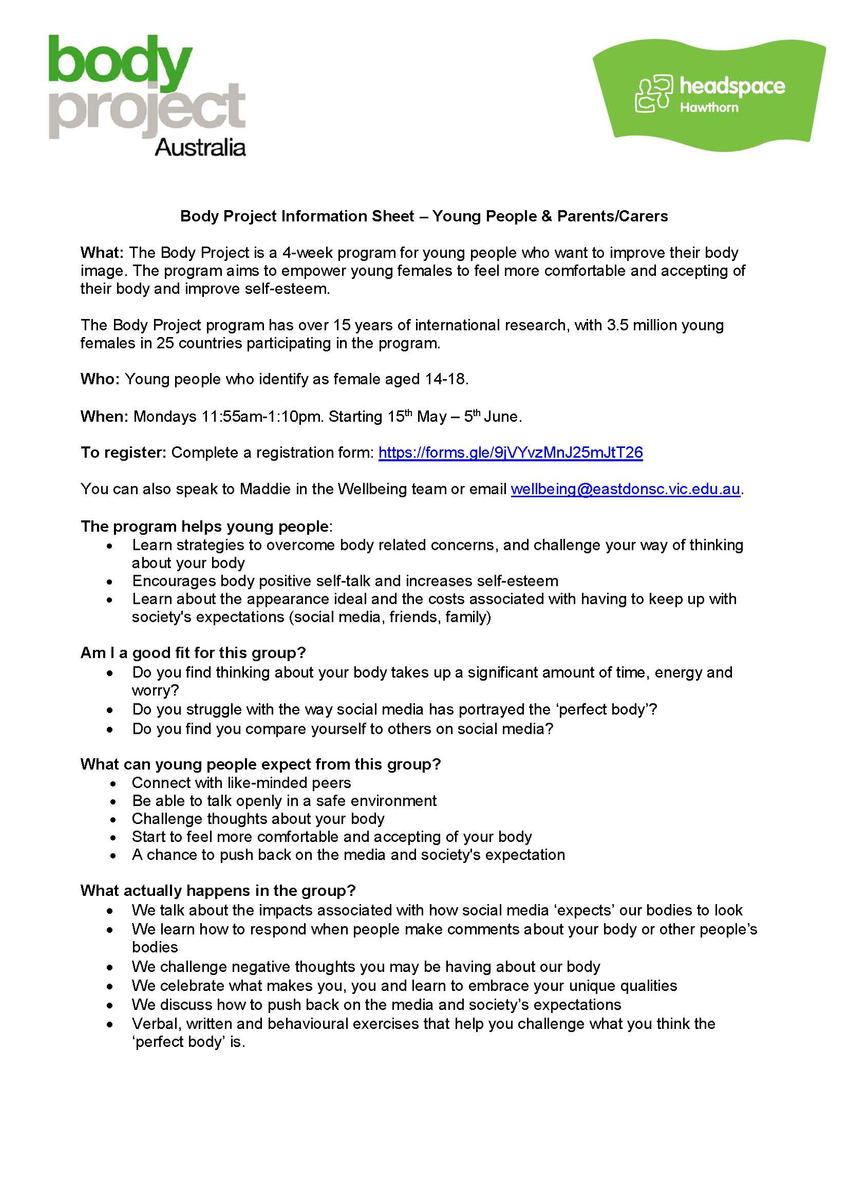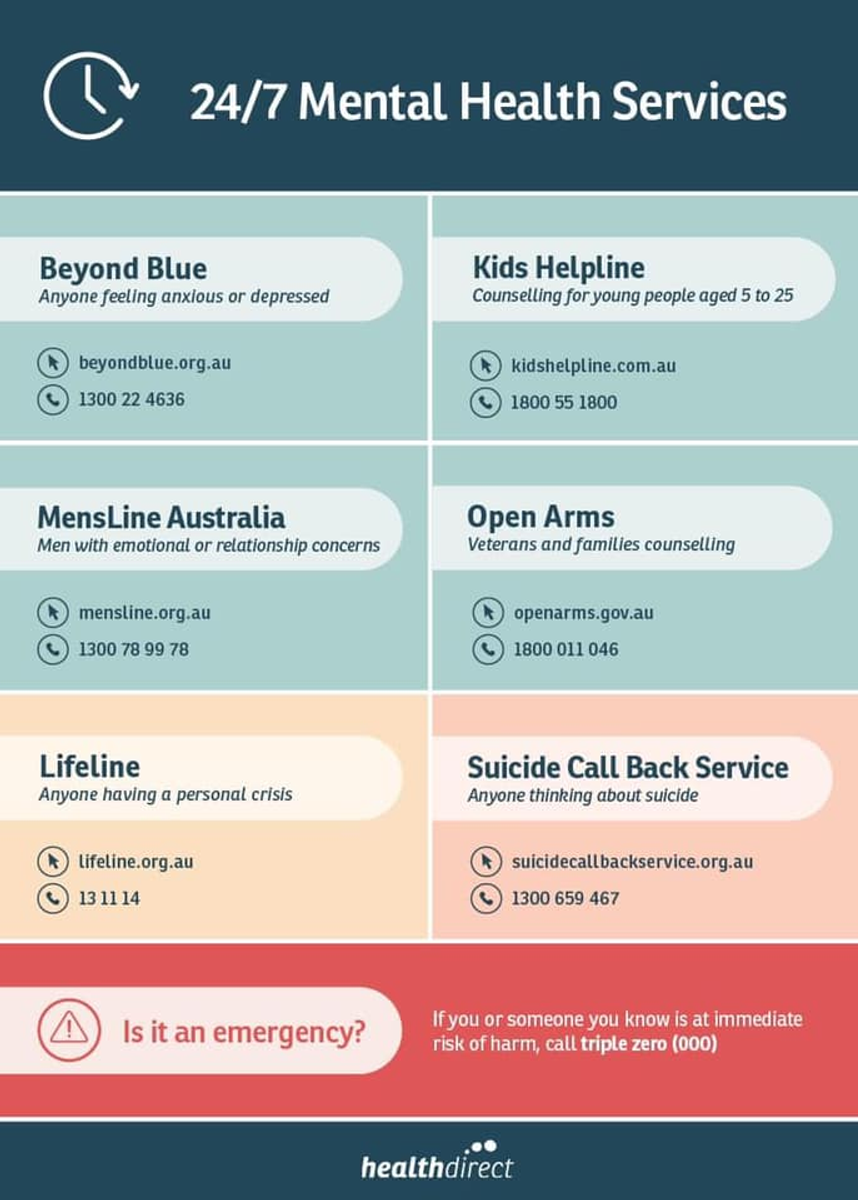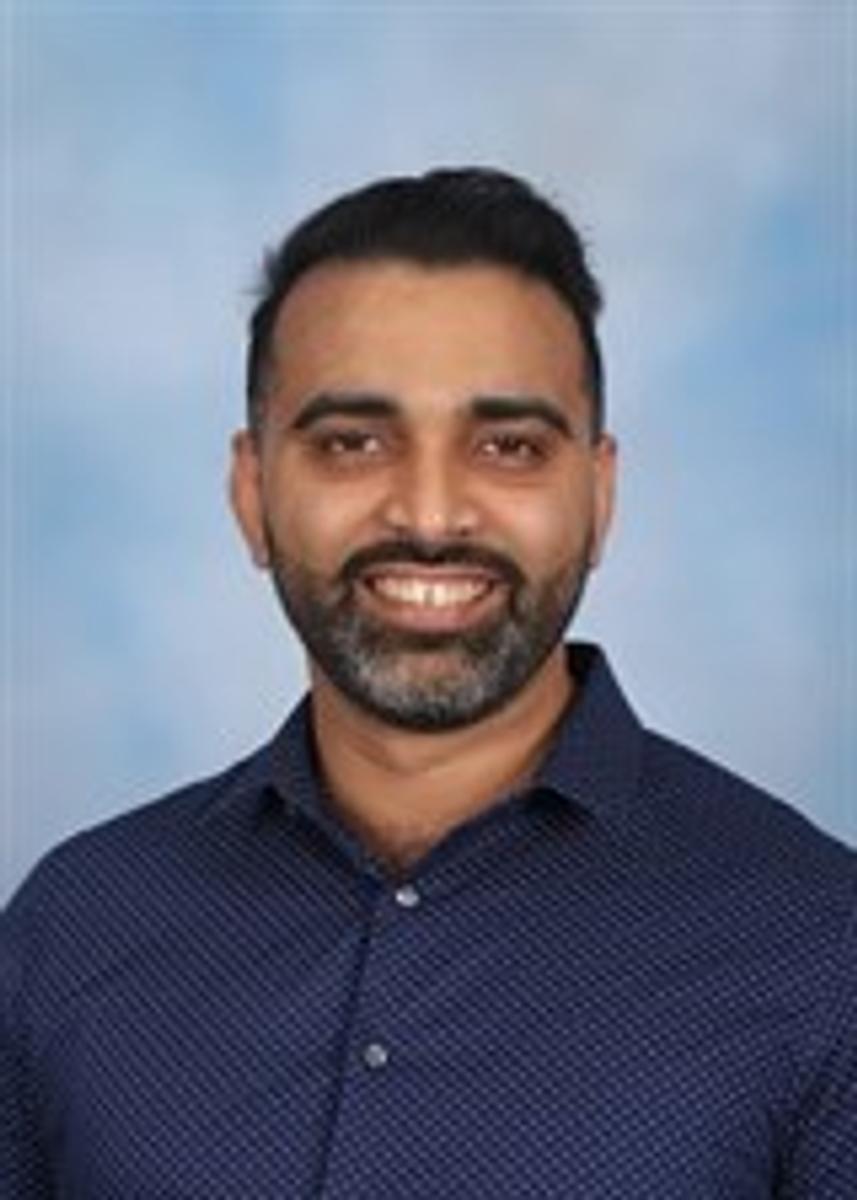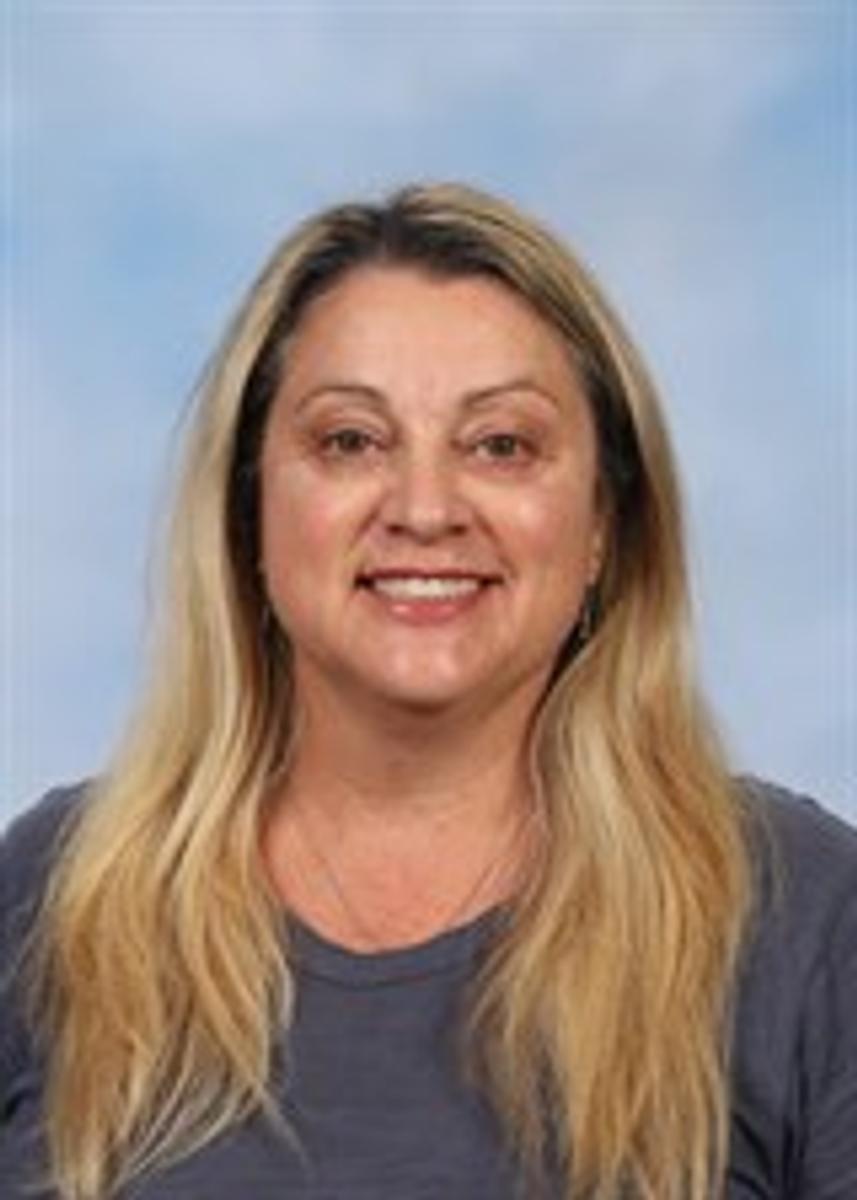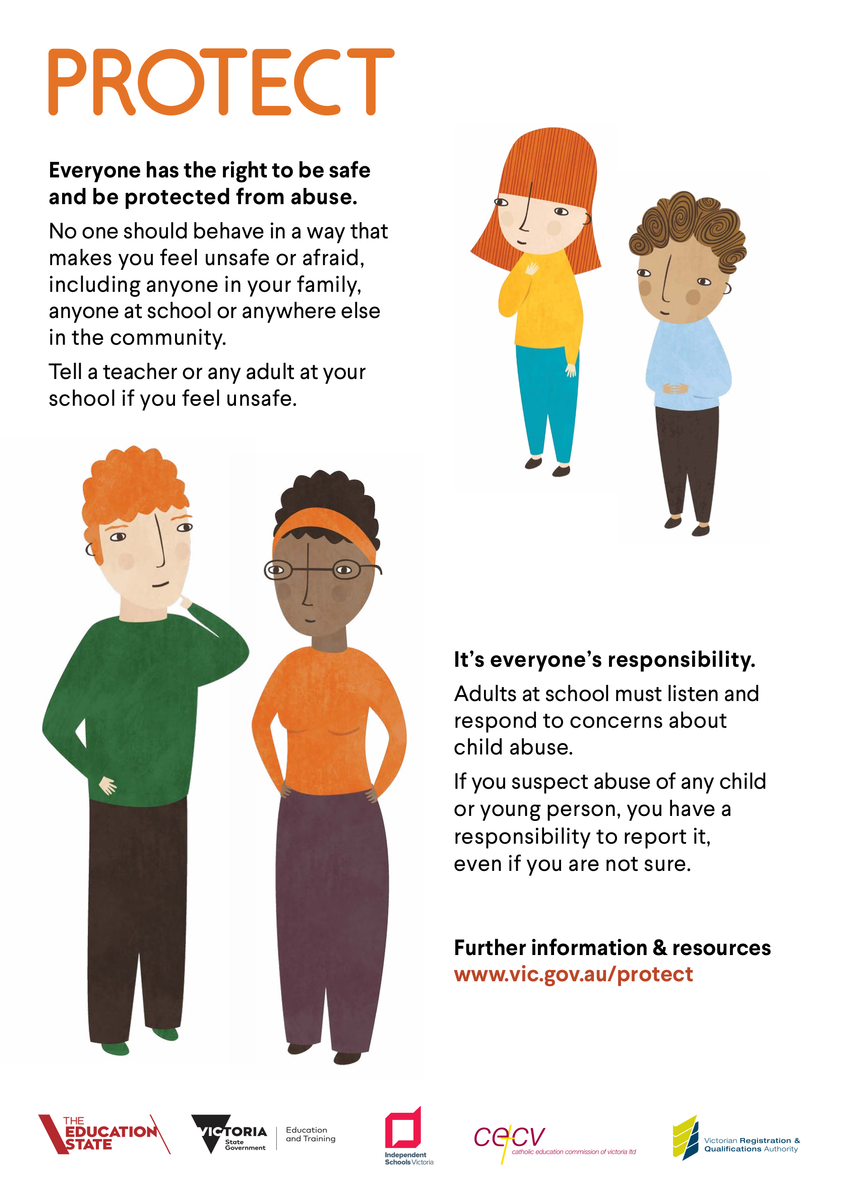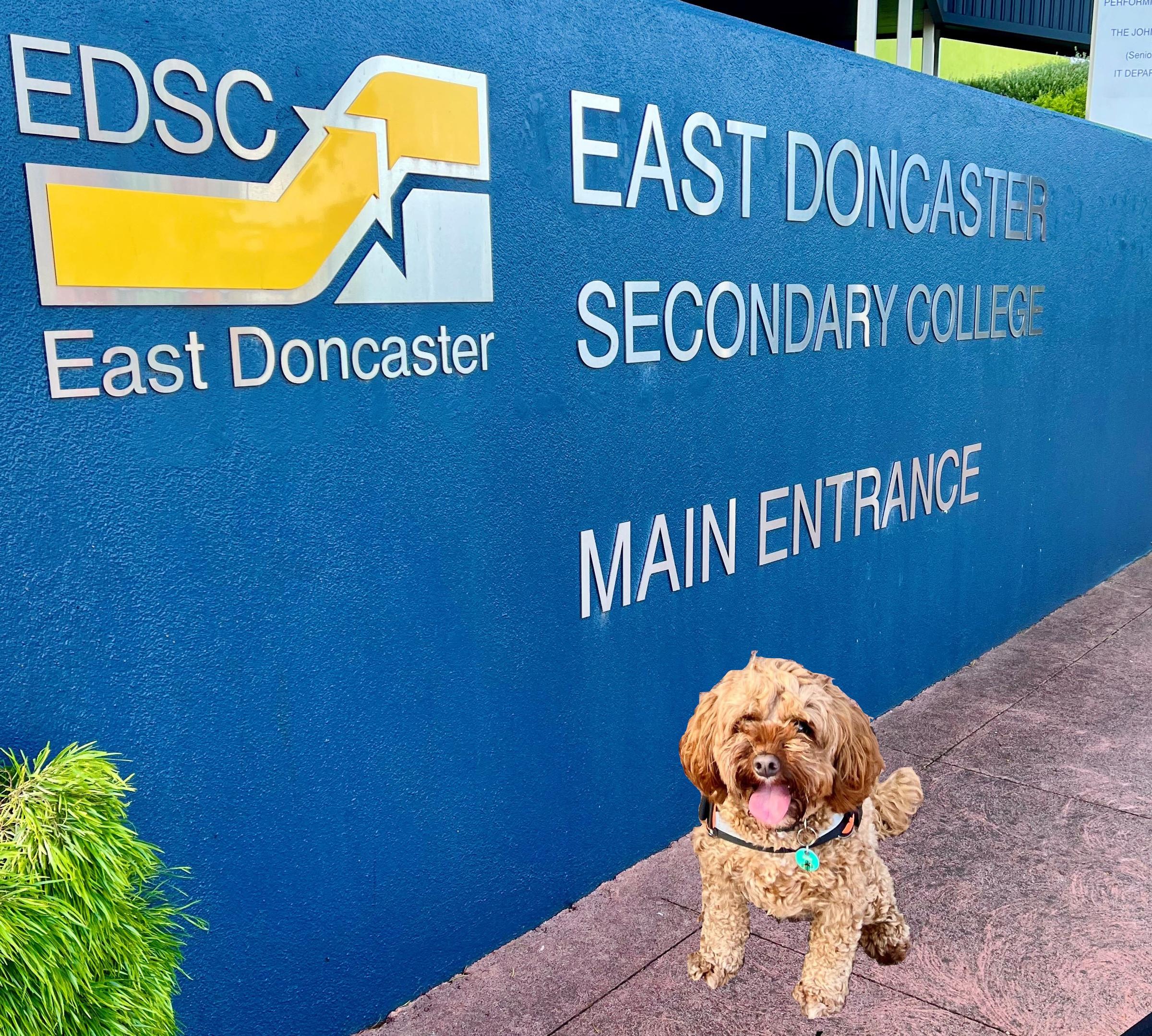
Student Wellbeing News
picture of Kobe - Wellbeing Dog
The Body Project Australia - Year 8-12
The Wellbeing Team is excited to facilitate the Body Project @ EDSC. Headspace Hawthorn will run the 4-week program every Monday starting on 15 May 2023. We are looking for students aged 14-18 who identify as female.
If thinking about your body takes up significant time, energy, and worry, join Sara for the Body Project!
This is a 4-week program for young people who want to improve their body image and self-esteem. You will learn strategies to feel comfortable and accepting of your body.
When: Monday's 11:55-1:10pm, starting 15 May – 5 June
Who: Young people aged 14-18
Where: Wellbeing Hub, East Doncaster Secondary College
Cost: Free
Registrations are required via the link: https://forms.gle/9jVYvzMnJ25mJtT26
Speak to Maddie in the Wellbeing team or email wellbeing@eastdonsc.vic.edu.au
We can’t wait to see you there !
Amal Saleh-Zada
Director of Wellbeing
Food & Financial Support
As we are all aware, the cost of living is increasing. We realise that this might be causing some distress to members of the EDSC community. If you are experiencing financial difficulties or food insecurity please look at the website www.askizzy.org.au. This website can help you locate services for food, money, clothing, health & housing in your area.
The College is able to provide a range of food to families within the community. Foodbank Victoria provide EDSC fresh fruit, cereals, milk, different types of ready meals, fruit cups and messy monkey snacks. If you and your family are experiencing food insecurity, please contact the school to arrange a food collection. For a confidential conversation, please call Maddie Sill on 9842-2244.
Please also note that if your child forgets their lunch they can come to the Wellbeing Hub to access the pantry.
Wellbeing Team
Wellbeing Staff
For more information about Wellbeing at the College, please visit the following link ..
Child Safety Standards
East Doncaster Secondary College is committed to the safety and wellbeing of all children and young people. This will be the primary focus of our care and decision making.
East Doncaster Secondary College has zero tolerance for child abuse.
East Doncaster Secondary College is committed to providing a child safe environment where children and young people are safe and feel safe, and their voices are heard about decisions that affect their lives. Particular attention will be paid to the cultural safety of Aboriginal children and children from culturally and/or linguistically diverse backgrounds, as well as the safety of children with a disability.
Every person involved in East Doncaster Secondary College has a responsibility to understand the important and specific role he/she plays individually and collectively to ensure that the wellbeing and safety of all children and young people is at the forefront of all they do and every decision they make.
In our planning, decision making and operations, all personnel at East Doncaster Secondary College will:
- Take a preventative, proactive and participatory approach to child safety;
- Value and empower children to participate in decisions which affect their lives;
- Foster a culture of openness that supports all persons to safely disclose risks of harm to children
- Respect diversity in cultures and child rearing practices while keeping child safety paramount;
- Provide written guidance on appropriate conduct and behaviour towards children;
- Engage only the most suitable people to work with children and have high quality staff and volunteer supervision and professional development;
- Ensure children know who to talk with if they are worried or are feeling unsafe, and that they are comfortable and encouraged to raise such issues;
- Report suspected abuse, neglect or mistreatment promptly to the appropriate authorities;
- Share information appropriately and lawfully with other organisations where the safety and wellbeing of children is at risk; and
- Value the input of and communicate regularly with families and carers.

